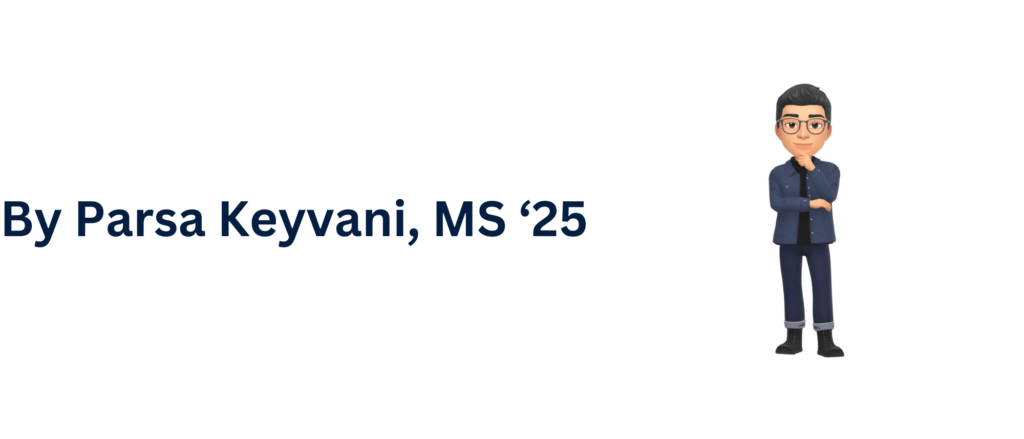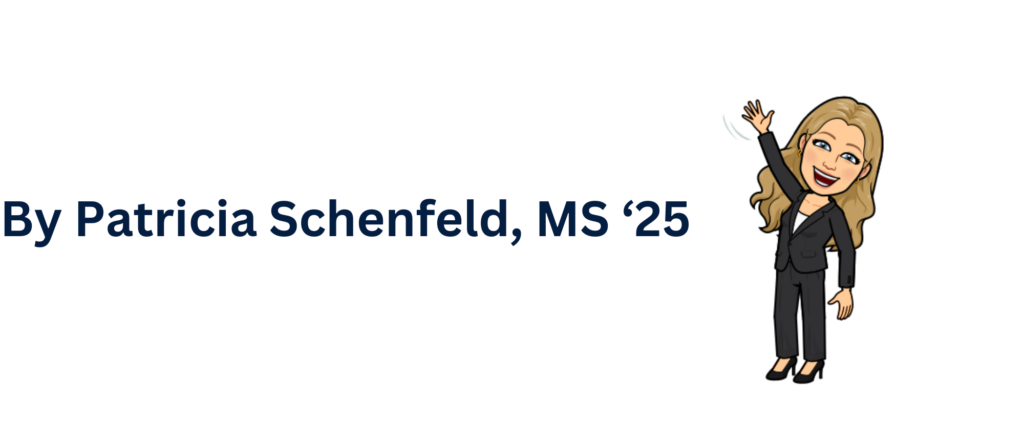Landing the Job: A Tactical Guide for DSAN Students


🗂️ 1. Set Your Foundation: Define Your Job Search Goals
Before applying for a job, it is important to define your job search goals. Are you looking for a summer internship, a full time corporate role or a research position? This is important because each one of these requires a different approach to applying for success. In our experience, the more you narrow down your interests, the better your chances get.
For example, you can narrow down by asking yourself what type of role fits your interests? Are you more into back-end or front-end roles? If back-end interests you more, then data and software engineer roles are more suitable for you, but if you are interested more in the front-end, then data visualization and design roles like business intelligence is what you should target.
Pro tip, you can narrow down even more for example taking the back-end role a step further, you can ask yourself are you more interested in working with databases or do you enjoy building ML models? This is really important because once you find your niche, then you can focus primarily on learning and developing your skills and experience targeted to this niche and advertise yourself for these types of jobs, which puts you in the top candidates for the role.
🧭 2. Target Companies the Smart Way
Narrowing down doesn’t just apply to the roles. You can, and in fact you should narrow down your list of companies you want to target. First, ask yourself, what industries do you enjoy working in the most, and have the past experience to support you? Is it sports? Healthcare? Tech? Insurance or Finance? If you are interested in a specific industry but don’t have the necessary skills or experience, then you know to build them up and choose more related course projects in your classes that you can put on your resume to break into that industry.
Second, look beyond the big names. If you have entrepreneurial interests, for instance, working in small to medium-sized firms and startups is more helpful down the line than working in big companies. This ties closely with asking yourself the question of what you want to be doing in the next 10 years. We love this question because it really allows you to imagine the life you want for yourself and work toward achieving that career and lifestyle.
✅ 3. Stay Organized with a Job Application Tracker
This third one is something we personally wish we did more of during our job application process, and that is staying organized! There are many ways you can stay organized, but one of our favorite ways is downloading a job application tracker template, either in Notion or any other note-taking tool you use, and including company name, job title, status, date applied, and referral Y/N. This allows you to not just track your applications, but also is a reminder for you to change your strategy if you see yourself with no luck.
One thing Parsa learned early on is that some companies have a significantly simpler job application portal, and on the other hand, some have a ridiculously tedious process, so with the job tracking system he built for himself, he noted down those companies to pay more attention to or avoid applying to those companies altogether. Another reason for creating this tracker is that it holds you accountable for any weekly goals you may have, like submitting a specific number of job applications per week.
Although setting weekly goals and numbers is helpful, keep in mind that job applications, in our opinion, are not a numbers game; rather it is about quality over quantity. Making sure with each application, you put your best foot forward, getting referrals, and writing compelling cover letters.
💡 4. Prep Like a Pro: Technical & Behavioral Interviews
Preparation is key when it comes to nailing an interview. The most common types of interviews are technical, behavioral, and case studies. Utilizing the right resources will allow you to maximize your preparation time and optimize your studies.
🔍 Technical Interview Tips
There are several websites out there that offer technical interview practice, such as LeetCode, Interviewing.io, HackerRank, DataLemur, and StrataScratch. These resources will allow you to practice different techniques and coding skills. Some websites even offer specific examples for different company interview styles.
It’s important to get an understanding of the company’s expectations when it comes to their interview process (SQL heavy? Python? Case study format?). Looking on the Glassdoor website, you can look at people’s reviews from their interview experience and get a better understanding of what you may need to focus on. Overall, the more time you spend prepping, the better, but at least 2 weeks of prep time should be sufficient for technical interviews.
🎭 Behavioral Interview Tips
Behavioral questions will be a part of almost every interview you have. They are one of the most common type of interview questions, and it’s essential to have a great foundation of how to answer them.
The best way to answer a behavioral question is to use the STAR method. Situation, Task, Action, Result.
- Situation: Set the scene by describing the challenge or event you faced.
- Task: Explain what your responsibilities were in that situation.
- Action: Describe what steps you took to overcome the challenge.
- Result: Share what you achieved through your actions.
You can find common behavioral questions online, and there are resources like Big Interview that help you practice your delivery.
Some of the most commonly asked questions are:
- Tell me about a time you failed.
- What is your greatest strength/weakness?
- Tell me about a time you worked in a team.
- Tell me about a time when you handled conflict.
There are endless questions they could ask, but memorizing answers to the most popular questions will help you be prepared.
Consulting Style Case Study Tips
Consulting case studies are a very specific type of interview, and most definitely require weeks to months of preparation and practice. Utilizing paid services such as Management Consulted and Case Coach can significantly increase your case study skills.
🧘 5. Day-of Interview Tips
- Set up your space
- If your interview is virtual, make sure you are in a quiet, well-lit space.
- Mindset shift
- Think of it as a conversation, not a test.
- Have water, resume printed, a pen/paper ready
- Keep an extra pen/pencil nearby as backup!
📬 6. After the Interview: Stand Out in the Follow-Up
After your interview is completed, you can (optionally) send a thank-you note to your interviewers (or to your recruiter to pass along). Keep the email short and sweet, mentioning specific topics you discussed with them to make it personalized.
If the timeline you were given has passed and you haven’t heard back yet, it’s perfectly okay to send a follow-up email. In your message, express your continued interest and enthusiasm for the opportunity, and politely ask if there is an updated timeline for next steps.
